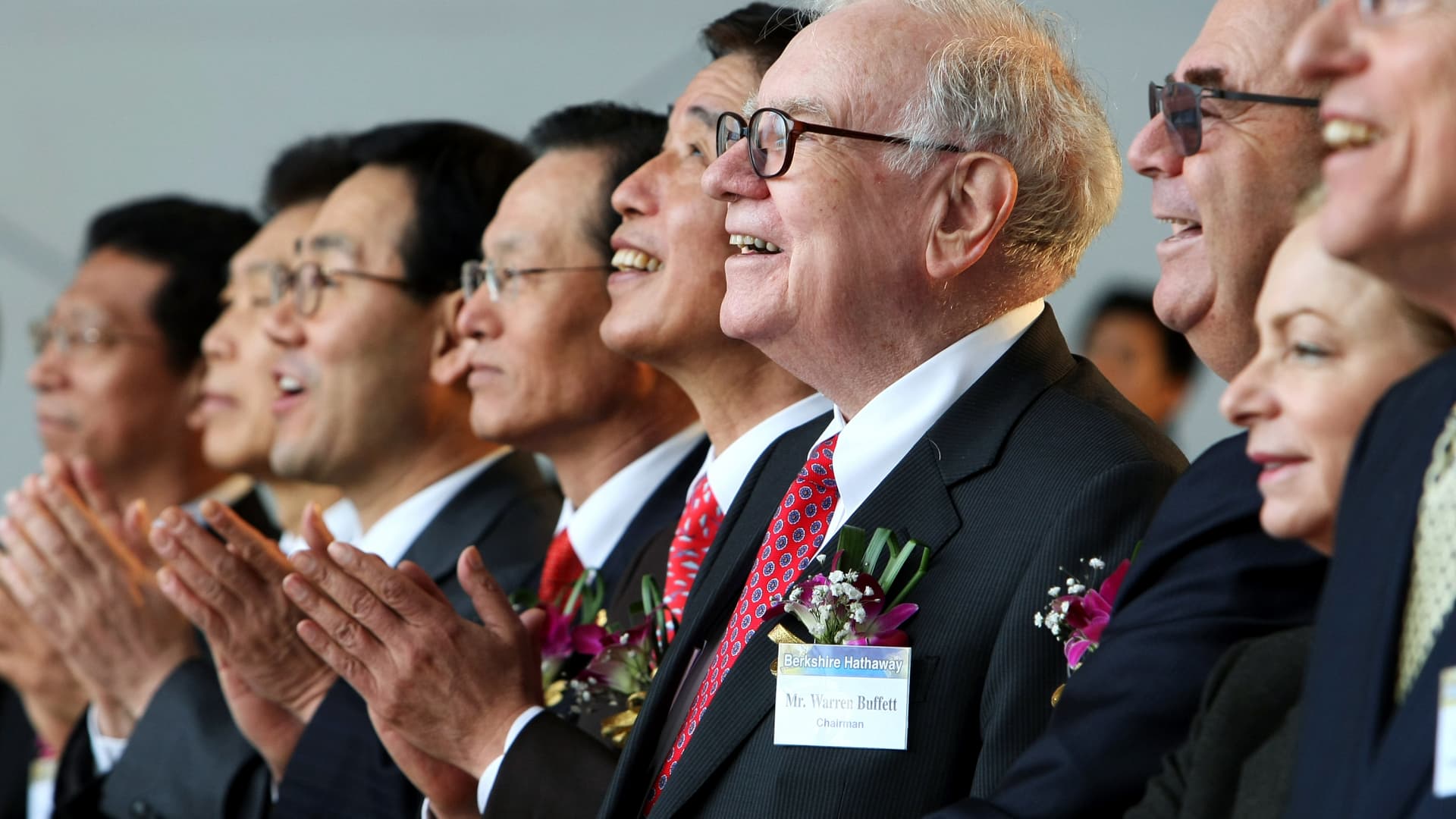Warren Buffett’s late-career foray into Japan has turned into one of his most lucrative investments and JPMorgan believes the “Oracle of Omaha” is not done yet. Back in August 2020, when Buffett was approaching his 90th birthday, Berkshire revealed it had amassed positions of more than 5% in Itochu , Marubeni , Mitsubishi , Mitsui and Sumitomo — Japan’s top trading houses that deal with everything from energy to consumer goods. Over the subsequent five years, the stock prices of the five companies have all more than tripled with the best performer surging more than 500%, according to JPMorgan’s calculations. “We think it was clearly the Buffett effect that led the trading companies’ shares to break out of their long-term phase of relative undervaluation,” JPMorgan said in a note to clients analyzing the trading houses. “Engagement with Berkshire Hathaway as the largest shareholder has also greatly affected the management teams’ share price awareness and their capital allocation strategy including for shareholder returns.” JPMorgan initiated coverage on these Japanese companies on Tuesday, with an overweight rating on Itochu, Mitsui & Co. and Marubeni, a neutral rating on Sumitomo and an underweight rating on Mitsubishi. At the end of 2024, Berkshire’s aggregate cost for the holdings was $13.8 billion, while their market value had already swelled to $23.5 billion. ‘Little handbook’ Buffett revealed that he first discovered these companies when reading a “little handbook” that listed Japan’s thousands of publicly traded firms. At the time, these stocks were selling at a deep discount, while he was attracted to their reliable dividends and their diversified, cash-generative businesses. “I was just going through a little handbook that probably had two or three thousand Japanese companies in it,” he said in May during Berkshire’s annual meeting before announcing he would step down as CEO at the end of 2025. “There were these five trading companies selling at ridiculously low prices. So I spent about a year acquiring them.” Buffett is also able to hedge currency risk by selling Japanese debt and then pocket the difference between dividends from the investments and bond coupon payments he pays out. The annual dividend income expected from the Japanese investments in 2025 will total about $812 million and the interest cost of Berkshire’s yen-denominated debt will be about $135 million, according to Berkshire’s earnings report. JPMorgan sees Buffett adding to the trade Buffett said Berkshire has reached an agreement with the companies to go beyond an initial 10% ceiling. In fact, Berkshire’s stakes in Mitsubishi and Mitsui & Co. exceeded 10% as of August, according to filings. “We expect Warren Buffett’s Berkshire Hathaway to continue to build up stakes in the sector’s big five companies at a moderate pace for the time being,” JPMorgan said. Buffett himself has made clear he and his successor Greg Abel are in it for the long haul. “In the next 50 years … we won’t give a thought to selling those,” Buffett said in May. “We will not be selling any stock. That will not happen in decades, if then,” he continued. “The Japan investment has just been right up our alley.” For investors, Buffett’s Japan bet has become a reminder that even in his 90s, the legendary stock picker can still surprise the market and hit a home run.





